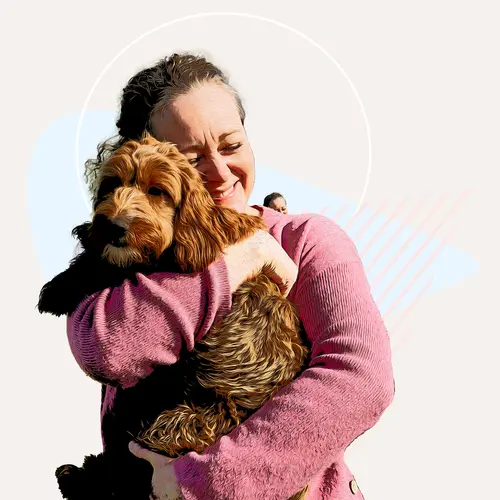Whether you buy your dog food or make it yourself, your dog needs a balanced diet to stay healthy. That includes a mix of:
- Proteins
- Carbohydrates
- Fats
- Vitamins
- Minerals
- Water
To make sure the dog food you buy has the right mix of nutrients, look for the words "complete and balanced nutrition" on the label.
You might also see "Meets the nutritional requirements of dogs established by the American Association of Feed Control Officials (AAFCO)" or "Complete and balanced nutrition for dogs based on AAFCO feeding trials."
Both dry and canned dog food will give your dog good nutrition. Some experts prefer dry food because it may help keep teeth and gums healthy.
If you make your own dog food, use recipes created by veterinary nutritionists to be "complete and balanced."
Essential Nutrients
Proteins: Body tissues are made of proteins. Your dog's body makes only 13 of the 23 amino acids that are the building blocks of proteins. The other 10 have to come from food.
Fats: Fats give your dog energy. They also help keep your dog's skin and hair healthy. Some important fatty acids for your dog are:
- Linoleic acid
- Omega-6
- Omega-3
Your dog's body can't make enough essential fatty acids on its own, so they need to eat food that has them.
Carbohydrates: Carbs come from plants. When your dog eats grains and vegetables, they get:
- Sugars
- Starches
- Fiber
Carbs power the tissues in your dog's body. They also help keep your dog's intestines healthy.
Vitamins and minerals: These are needed for many of the chemical reactions in your dog's body, such as building bones and keeping them strong.
Your dog can get all the vitamins and minerals they need in "balanced" dog food, including:
- Vitamin A
- Vitamin D
- Vitamin E
- Vitamin K
- B-complex vitamins
- Calcium
- Phosphorus
Dogs don't have to have vitamin C in their food because their bodies make it.
When they eat nutritious food, your dog doesn't need vitamin or mineral supplements. In fact, giving your dog supplements can be dangerous.
Water: Even if dogs lose all of their body fat and half their protein, they can survive. But water is so important that they could die if they lose only 10% of the water in their body. Water makes up more than half of an adult dog's body weight.
Although canned dog food may have a lot of water in it, it's not enough for your dog. Make sure your dog always has fresh, clean water available.
Feed on a Schedule
Usually, adult dogs should be fed once or twice a day. Most large-breed dogs should be fed at least twice a day so they don't overeat and get bloated.
Experts agree that treats and table scraps should never be more than 10% of your dog's daily calories. Just like with people, overeating can make your dog overweight. And that can lead to the same kinds of health problems that people have, such as diabetes and heart disease.
Your veterinarian can help you figure out the best diet and feeding schedule to keep your dog healthy.


